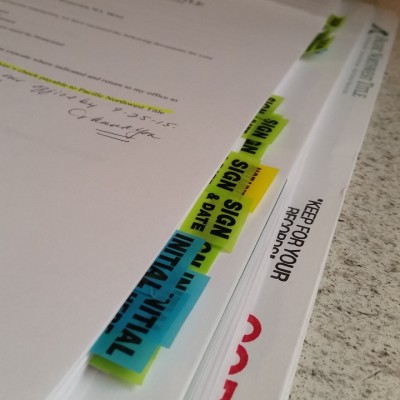The HUD1 Was Renamed Closing Disclosure
 Changes in HUD1 and the New Closing Disclosure
Changes in HUD1 and the New Closing Disclosure
As of October 3rd, 2014 the changes in HUD1 took effect and the new Closing Disclosure, CD, replaced the old HUD1 forms for the closing of all residential real estate transactions. The changes in mortgage lending and HUD1 closing statement are part of the Dodd/Frank laws aimed at consumer protection against shady mortgage companies in the aftermath of the last decades mortgage debacle. The new regulations would help the prevention of fleecing home buyers with last minute changes to their loan terms, which became a norm in many loans originated during the last real estate boom.
Other changes reflect on a triggering mechanism of 3 days review window, which will delay the closing as a result of any of the 3 required actions. Although the 3 changes required to trigger the delay are very clear in the new law, but there are still some misunderstanding among the general public. The main factors for this have been the misinformation and in some instances the wrong commentaries, which has been floating around the internet. To clear the confusion the 3 triggering events are listed below:
Three Changes Triggering 3 Days Review Extension
- Interest Rate Increase- Any increase of over 1/8 of a point in APR of fixed loans and ¼ of a point in APR for a flexible loan will trigger the 3-day review extension in the closing of a sale of a residential property. Please note that the decrease in APR would not trigger the extension of closing.
- Prepayment Penalty- If the prepayment penalty is added to any loan prior to closing it will trigger the 3-day review extension. This is to prevent the additional costs of the refinance or sale of a property imposed on homeowners with loans which include prepayment penalty clause added to the mortgage terms
- The Basic Loan Product Change- This rule is in place to prevent mortgage lender from changing the loan products and structure from a fixed mortgage to adjustable or interest only mortgage product. Such changes will automatically trigger the 3-day review extension in order to afford enough time for the home buyers to understand and attempt to negotiate the new terms of their mortgage.
There are absolutely no other trigger points to automatically delay the closing of a real estate transaction based on the Dodd/Frank Law. While many other events could delay a transaction but they are not related to this law. The following list demonstrates other reasons for a delay or even fall through of a closing, which is not related to Dodd/Frank Law:
- Walk Through Issues- If any issues are raised during the final walkthrough of the property that did not exist in prior inspections of the property could delay or stop the closing completely. The delay may result in seller remedying the issue or compensating the buyer and at times void the transaction completely. Such delays could happen in any transaction but are stemmed from Daud/Frank Law.
- Changes to Final Payment- Any changes to the final payments in Closing Statement, CD, will not trigger the 3-day delay in closing. Most often these changes are due to miscalculations or changes to the amount of the commission disbursement, prorated taxes or HOA fees and other similar charges.
- Typo in Closing Statement- Any changes due to a typo in the name of the parties, address and similar sections of the Closing Statement, CD, will not trigger the 3 days review extension period.

